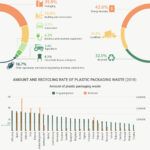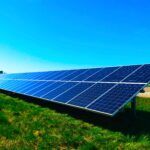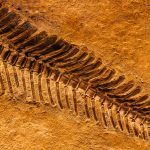Increasing the productivity of greenhouses is the objective of a project of the University of Almeria that uses colored plastic and ventilation to change the climatic conditions of greenhouses and play with the radiation that reaches the crop. The aim is to increase humidity and temperature conditions and increase productivity with clean energy without impacting the environment.
This task is not easy, the plastics can be pink, blue and transparent and each color varies its radiation, different variables are studied so that the farmer gets better results, more benefits and all with clean energy: the sun and the air.
The Vice Rector of Research of the UAL, Mr. Diego Valera, explains that “we are testing with different colored plastics, pink, blue and colorless that also modify the spectrum and are playing with the quality of light that leads to the plant and depending on the spectrum of the plastic can do certain things in each of the species. The same plastic is not used for peppers as for tomatoes”.
Likewise, the UAL researcher, María Ángeles Moreno, explained how they optimize the photosynthetic activity of crops to improve production.
In this trial of the engineering group of the University of Almeria is working with a European project, another state and two companies in the area. The research centers of Almeria and the University consider it a priority to seek alternatives to increase the profitability of farmers by achieving higher production at a lower cost.
Techniques
In the greenhouse of the experimental farm of the UAL, Anecoop, which is in charge of conservation and projects. It is a special greenhouse where ventilation is very important. It has side windows that open and close, the mosquito net always preventing insects from entering.
The zenithal ventilation is fundamental. It is intended to increase the photosynthesis of plants with climatic parameters. Greenhouse roofs are usually whitewashed to lower the temperature and this research group has been working for 25 years on climate control techniques in greenhouses. Now, in a different way, it aims to modify the radiation spectrum to lower the temperature in the greenhouse.
Projects and financing
In the greenhouse are applied several research projects , funded by the University or by the Ministry ,more than 200 thousand euros of funding, 4 years of research that began in 2020. All this to improve the Almeria society so close to the University and continue to evolve technically, bringing wealth to our land and our farmers. Final results of the project in 2023.






Leave a Reply